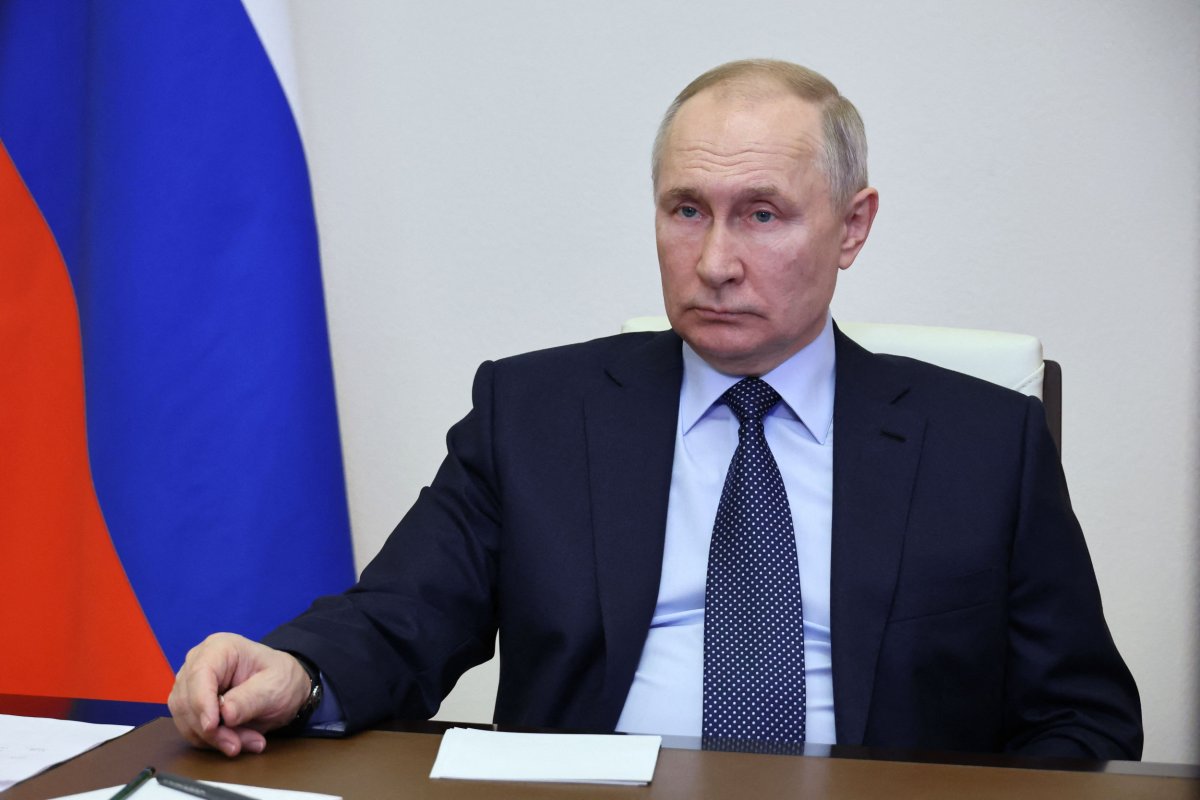Regional elections will be held in parts of Ukraine that were illegally annexed and are partially under the control of Russian forces. These will coincide with elections scheduled across the border in Russia.
Russian Federation Council chair Valentina Matvienko said on February 1 that the elections would take place on September 10.
The British Ministry of Defense explained in its latest assessment of the conflict in Ukraine that the move follows continued efforts to "Russify" the four Russian-annexed regions of Ukraine—the Donetsk and Luhansk regions, Kherson and Zaporizhzhia.

The four Ukrainian regions were illegally annexed by Russian President Vladimir Putin in the fall of 2022 following "sham" referendums. Russia is not fully in control of any of the regions, which make up about 15 percent of Ukraine's territory. Foreign governments, including the United States, said the move was illegitimate.
"Incorporating the elections into same day of voting which is scheduled across Russia highlights the leadership's ambition to present the areas as integral parts of the Federation," the defense ministry said on Monday.
"This follows continued efforts to 'Russify' the occupied areas, which include revision of the education, communication, and transport systems."
The defense ministry added that, while meaningful democratic choices are no longer available to voters at even regional-level elections in Russia, "leaders will likely make the self-vindicating argument that new elections further justify the occupation."
Latest Defence Intelligence update on the situation in Ukraine - 6 February 2023
— Ministry of Defence 🇬🇧 (@DefenceHQ) February 6, 2023
Find out more about the UK government's response: https://t.co/xZDhLskCpY
🇺🇦 #StandWithUkraine 🇺🇦 pic.twitter.com/COtwsg8peP
The announcement is part of a slew of changes that Russian-installed authorities have said they will make in the four territories.
On January 27, the Kremlin said it would impose a Moscow time zone in the territories.
Russia's Ministry of Industry and Trade made the announcement on its Telegram channel, saying that Donetsk and Luhansk regions, Kherson and Zaporizhzhia "will switch to Moscow time."
"The gradual synchronization of Russian legislation is underway after four new subjects have been admitted to the country," the ministry said. "In the near future, the DPR [the self-proclaimed Donetsk People's Republic], LPR [the self-proclaimed Luhansk People's Republic], Zaporizhzhia and Kherson oblasts will be part of the second time zone, in which Moscow time operates."
The ministry said it had submitted draft legislation on the matter to Russia's State Duma but it has yet to be signed into law.
When Putin illegally annexed the Black Sea peninsula of Crimea in 2014, the time zone in Crimea was officially aligned with Moscow's.
And on January 24, Russian Prime Minister Mikhail Mishustin signed a government order instructing the Russian Federal Penitentiary Service to set up 24 new penal colonies in the four newly-annexed regions.
According to the decree from the Russian government, 12 penal colonies will be set up in the Donetsk region. There will be a further seven in the Luhansk region, and three in the Russian-controlled part of the Kherson region. An additional two facilities will be built in Zaporizhzhia, where a "settlement-type colony" will also be established.
Kremlin spokesman Dmitry Peskov has said Russia is aiming to "ensure the security" of the regions as quickly as possible.
Newsweek has contacted the foreign ministries of Ukraine and Russia for comment.
Do you have a tip on a world news story that Newsweek should be covering? Do you have a question about the Russia-Ukraine war? Let us know via worldnews@newsweek.com.
Uncommon Knowledge
Newsweek is committed to challenging conventional wisdom and finding connections in the search for common ground.
Newsweek is committed to challenging conventional wisdom and finding connections in the search for common ground.
About the writer
Isabel van Brugen is a Newsweek Reporter based in Kuala Lumpur. Her focus is reporting on the Russia-Ukraine war. Isabel ... Read more
To read how Newsweek uses AI as a newsroom tool, Click here.








